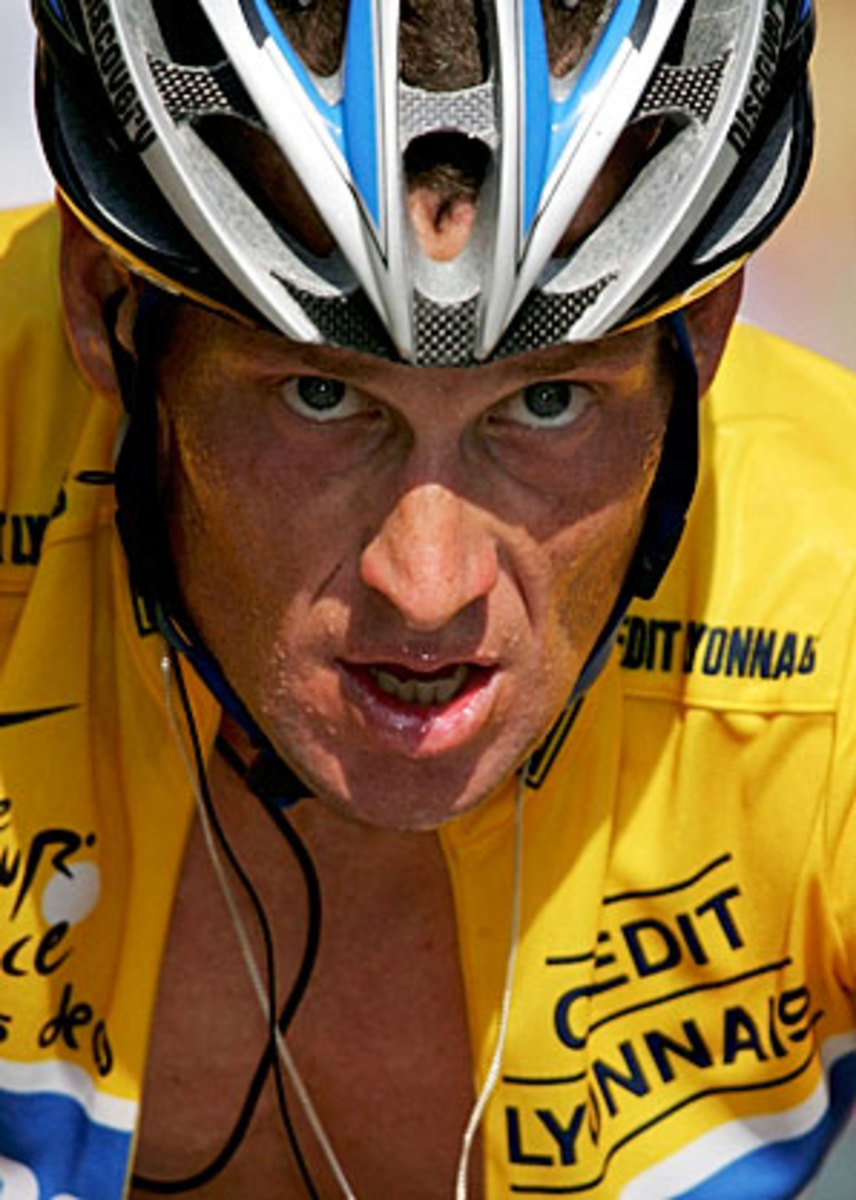With Lance, never a dull moment


There may have been more gifted athletes to ply their craft over the last 10 years, but none has been more interesting than Lance Armstrong, whose narrative is enriched, rather than impoverished, by the fact that he has been so many things to so many people: winner, hero, survivor, gladiator against cancer, comeback specialist; Lothario, heel, lightning rod for suspicion.
Between 1999 and 2005, Armstrong won seven Tours de France, two more than anyone, ever. While not the greatest rider of all time -- Eddie (the Cannibal) Merckx won more races, and is generally accorded that status -- the Texan has been the greatest champion of his sport's most important event. And, unlike the Cannibal, he's not finished.
In 2009, at the age of 38, Armstrong came out of retirement, having spent the previous 3½ years making speeches, running marathons, taking the fight to cancer and dating assorted blondes of various vintages. Despite snapping his right clavicle in a crash last March, and despite an absence of the climbing legs and time-trialing prowess that had marked his dynastic run, he scratched and clawed and willed himself onto the podium at this year's Tour. That third-place finish was a more dramatic result, to my mind, than most of his Tour wins, which he tended to have wrapped up midway through the third quarter.
The French finally warmed to him last July, appreciating the fact that, at long last, he showed human weakness. Nor did it hurt, in their eyes, that in the months leading up to the race, Armstrong was drug-tested with almost comical frequency by an alphabet soup of governing bodies. It can be said with conviction: He raced the '09 Tour clean.
That's not intended to cast doubt on his seven previous Tours. Until such time as he is proved to have doped (Armstrong has always adamantly denied such allegations), he is entitled to the presumption of innocence, threadbare though that presumption may be in a sport known to have been riddled with riders addicted to performance-enhancing drugs like so many spindly armed crack fiends.
If everyone around him was cheating, as many of his longtime rivals turned out to have been, how he was able to crush them while riding clean? "Sometimes," he once told me, "people come along with 12 cylinders."
He wasn't just a 12-cylinder freak, in this version of the story. He was a pioneering freak, a Velo-Terminator who focused on his specialty, Le Tour, like no rider had before him. Armstrong retained top-notch physical therapists, coaches and aerodynamic and biomechanical specialists -- the F1 Consortium, as they were collectively (and a tad self-importantly) known. As one of those coaches, Chris Carmichael, once told me, "His attitude was, Let's go out and get the best and brightest" -- a strategy that proved inconvenient for Armstrong when one of those "bright" minds was revealed to be Michele Ferrari, a controversial Italian doctor who has gone on record as saying, "If it doesn't show up in the drug controls, then it's not doping."
Ever open to new ideas, Armstrong was one of the first athletes to harness the power of Twitter. As of this writing, he has 2.3 million followers, an army he is not afraid to deploy for righteous causes. While other superstars of his wattage -- one-named icons like Michael and Tiger -- seem to devote the bulk of their down time to beefing up their bottom lines, Armstrong has been waging war on cancer since it nearly claimed him a dozen years ago.
The skeptics and critics, the doubters and haters -- and there are many -- accuse him of cloaking himself in the fight against cancer the better to ward off doping accusations. As Armstrong asks Greg LeMond in the savagely funny cartoon that appears on NYVelocity.com, "Why do you love cancer, Greg?"
It wasLeMond who latched onto the Armstrong-Ferrari connection, LeMond who has been the Texan's most persistent accuser, LeMond who described Armstrong's comeback as "a nightmare."
Au contraire, Greg. It is, from this reporter's perspective, manna from heaven. Armstrong's quietly vicious little feud with then-teammate Alberto Contador during the 2009 Tour, won by the Spaniard, made for spectacular theater. It should be no less riveting to watch these two marking each other's attacks in 2010, now that the older rider has moved to the newly minted Team Radio Shack. Of course Armstrong created an enemy in Contador; he requires a suitable bête noire to keep himself interested. He is, to paraphase the Dos Equis boulevardier, the most interesting athlete in the world.
